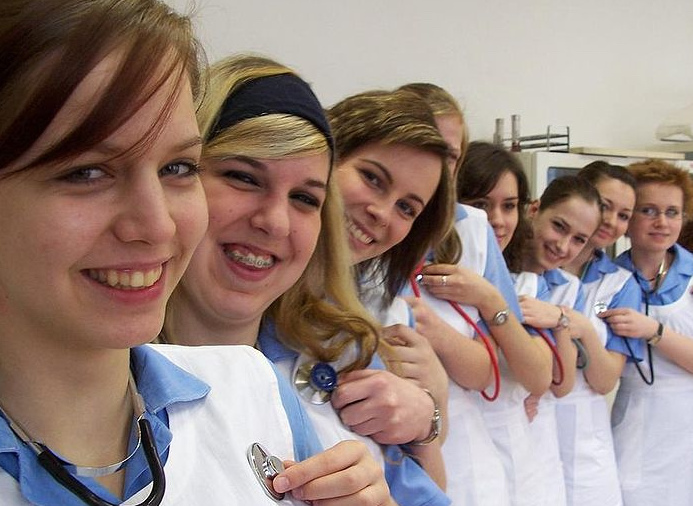Student bursaries for nurses and midwives: should they be scrapped?
Protests and petitions about the government’s proposal to scrap bursaries for student nurses and midwives from 2017 should surprise no one.
Let’s look at some of the issues:
Who is ‘For’ this Proposal and Why?
UK university faculties in nursing and midwifery have actively been pushing the Treasury to scrap the system. It has led to a cap on the number of training places the government can afford to make available. Currently only 20,000 places are offered a year, for each of which there are 10 applicants. So, it is argued, the demand is unlikely to dry up with the change to loans.
The University of Bolton introduced this loan system for its nursing students early in 2015 so that it could increase its number of training places and so tackle the local nursing shortage. It has found that they still had ’a good response ‘in terms of applications.
The Chancellor, George Osborne, says the changes will save the government £800m a year and would remove restraints on the number of places on courses. Moreover it will hopefully boost the nursing workforce by 10,000 graduates during the current parliament.
Dame Professor Jessica Corner, chair of the Council of Deans of Health, was quoted in The Guardian this month: ‘There is a real opportunity for us to start talking about that with the NHS trusts and employers. For example, some sort of ‘golden hello’ arrangement when people start their first job that helps with the costs of their loan repayments. It wouldn’t be expensive for NHS trusts. That would help reassure potential students worrying about the future.’
Corner adds: ‘My passion is for the nursing profession and for patient care. If these changes result in us having sufficient money to recruit a higher number of nurses, midwives and health professionals then I will be very happy.’
Currently many universities are struggling to sustain the funding of existing courses, as they receive less for their training programmes than they actually cost to deliver.
Universities say loans will provide more money upfront for students than current bursaries which still leave students a deficit in their living costs. The RCN believes bursaries leave many student nurses with too little money to live on.
Who is ‘Against’ and Why?
The Unions have opposed a loan system. They argue it will deter future students from choosing nursing because of the prospect of being saddled with a large loan and a relatively small starting wage. They fear it will be an obstacle to people from poorer backgrounds and career changers. Midwifery in particular attracts a large number of mature students over 29. Many bring with them vital existing experience of childbirth but are already saddled with debt from a first degree.
Jon Skewes, Director for Policy, Employment Relations and Communications at the Royal College of Midwives, warns the risk is that the proposals will wipe out a whole cohort of students.
Janet Davies, chief executive of the Royal College of Nursing, says removal of bursaries will be ‘a crushing blow’ for nursing students. She voices deep concerns that people from lower income backgrounds will be put off applying for training at university. She highlights the fact that despite the loan system already well established among students on other degree courses, nursing students face very different challenges. The requirement to undertake clinical placements during non-term time, for example, means they have little time to do paid work, in contrast to many of their university peers.
Many student nurse and midwives have taken to the streets in active protest and using online petitions to make their feelings known.
Conclusions
- Certainly the existing grants based system is unable to meet the costs of increasing student nurse and midwifery numbers to meet national need. Yet by removing bursaries, instead of freeing up more training places, they could actually cause a widespread recruitment problem, if potential students are put off applying.
- Even if there are enough applicants for training places, there are likely to be fewer students applying per place due both to increased debts incurred and proportionally if there are more places to fill. So will Universities be able to be as selective as they have been previously in getting the best and most suitable candidates?
- Universities are in an unsustainable position in funding existing courses, so a change to the current funding arrangements is needed.
- But are there other ways to fund courses? Could there be assistance after qualifying with repayments of loans? Would graduate nurse financial incentives also help with retention after qualifying? What efforts will the government make to assist those who would most likely be excluded by this loan change? Could they give incentives to ease the financial burden on applicants from poor income families and mature students with families and first-degree debts already
The way the government now responds might show us actually how much this proposal is motivated by the desire to increase training places, and how much is it primarily an NHS money saving exercise.













Leave a Reply
Want to join the discussion?Feel free to contribute!